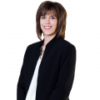Educators have been inundated with news articles and media posts focused on the amount of “learning loss” that students have experienced since the requirement to close on-campus learning in March of 2020. While some schools were able to fully return to onsite instruction for the ‘20-’21 school year, others were required to remain fully virtual and many offered hybrid approaches to learning. Even those who were able to return to a face-to-face environment experienced times of entire school or class quarantines, emergency returns to virtual learning, and staff shortages due to the COVID-19 pandemic. With those challenges came the necessity for educators to learn to teach their subject areas across many platforms while also taking on the task of investigating new technologies and addressing safety concerns for themselves, their families and their students. Are there gaps in student learning? Absolutely. But certainly not for a lack of blood, sweat, and millions of tears by every educator in our field.
So, how do we close those gaps and continue to move forward? We are going to need all of the knowledge and expertise at the table to make data-driven decisions for every student based upon their individual needs. If we dig deep and reflect on all that we have been through since the pandemic, it is my hope that we can see that we are more prepared than ever to take on this upcoming challenge. Think about it. We have learned so many methods and strategies to differentiate learning – Zooming in with another teacher’s class to learn a missed target; watching a recorded video of a lesson from a teacher down the hall to intervene or extend student learning; small groups being re-evaluated with quicker, more effective assessments – and these are just a few that I personally have seen in action. I know there are even more being used by teachers everywhere. Moving forward and closing learning gaps will not be easy. But it will definitely be worth it!
Minding the Gaps
So, how do we get started? I would encourage you to start with the Mind the Gaps webinar that Mike Mattos, Heather Frizielle, Julie Schmidt, Jeanne Spiller, and Nicole Dimich offered in the Summer of 2020. This three-part series provides strategies for designing a master schedule, approaches for differentiated learning, and successful assessment practices – all focused on how to address learning loss. One thing I appreciate most about the experts in this series is that they are champions for both educators and the students they serve. They offer no-nonsense strategies that encompass zero fluff…we don’t have time (or patience) for fluff.
“Designing a Master Schedule to Target Learning Gaps” is the first part of the “Mind the Gap” series. Here, Mattos discusses the importance of a multitiered system of supports that must be embedded in a school’s master schedule. He addresses the identification of essential grade-level standards while also focusing on the prerequisite skills required to support those standards. Vertical decisions must be made collaboratively in order to respond to a student’s missing skills and those vertical conversations must also include strategies for intervening upon and extending student learning. Here is where every person in every school must be at the table to provide their knowledge and expertise. This cannot happen without a skillfully designed master schedule where student learning comes first.
A Proactive Approach
The second session of this series “Yes We Can and Yes We Must: A Proactive Approach to Minding the Gap” continues to dive into the impact of missed learning due to the chaos caused by the pandemic. Frizielle, Schmidt, and Spiller lead great discussions around identifying students in need of additional support before the school year begins. This means, once again, a collaborative effort between grade-level teachers looking at individual student data to determine the specific skills that will need to be addressed right away. These experts offer suggestions that can be used with students above, at, and below grade level as well as those that are just missing a few of the prerequisite skills required for their current grade level curriculum.
The Most Effective Interventions
Nicole Dimich wraps up the series with “Transforming Assessment Practices in Unprecedented Times to Ensure Student Success.” Powerful assessment practices are shared throughout this section, building upon the work discussed in the previous two. Dimich reminds educators that not only is it important that the most essential standards have been identified and taught, but that those standards are also unpacked to the smallest learning targets possible. When assessments are built around specific learning targets, teachers are able to quickly identify areas of strengths and weaknesses in student learning. Interventions can then be administered, allowing a more intense focus on the gaps under each standard. This cycle empowers students to take ownership of their learning by providing timely and authentic feedback, enhancing the assessment process.
Although we will continue to hear the words “learning loss” for quite some time, I’m not sure those are the most appropriate words to describe this last year. We had a lot of “learning wins,” too. We won at learning how to do things differently. When educators learn, everyone learns. We won at seeing how important it is for teachers to be able to collaborate and how much our students need to be a part of the learning. We won at moving away from “that’s the way it’s always been done” and can see that there are other ways to do things that might just be better. My wish for this school year is that every educator is able to continue to see all sizes of WINS as our students return to school. Celebrate the small, medium, and big wins along the way – we will all be WINNING together!
“There’s winning and there’s losing and in life both will happen. What is never acceptable to me is quitting.” – Earvin “Magic” Johnson

